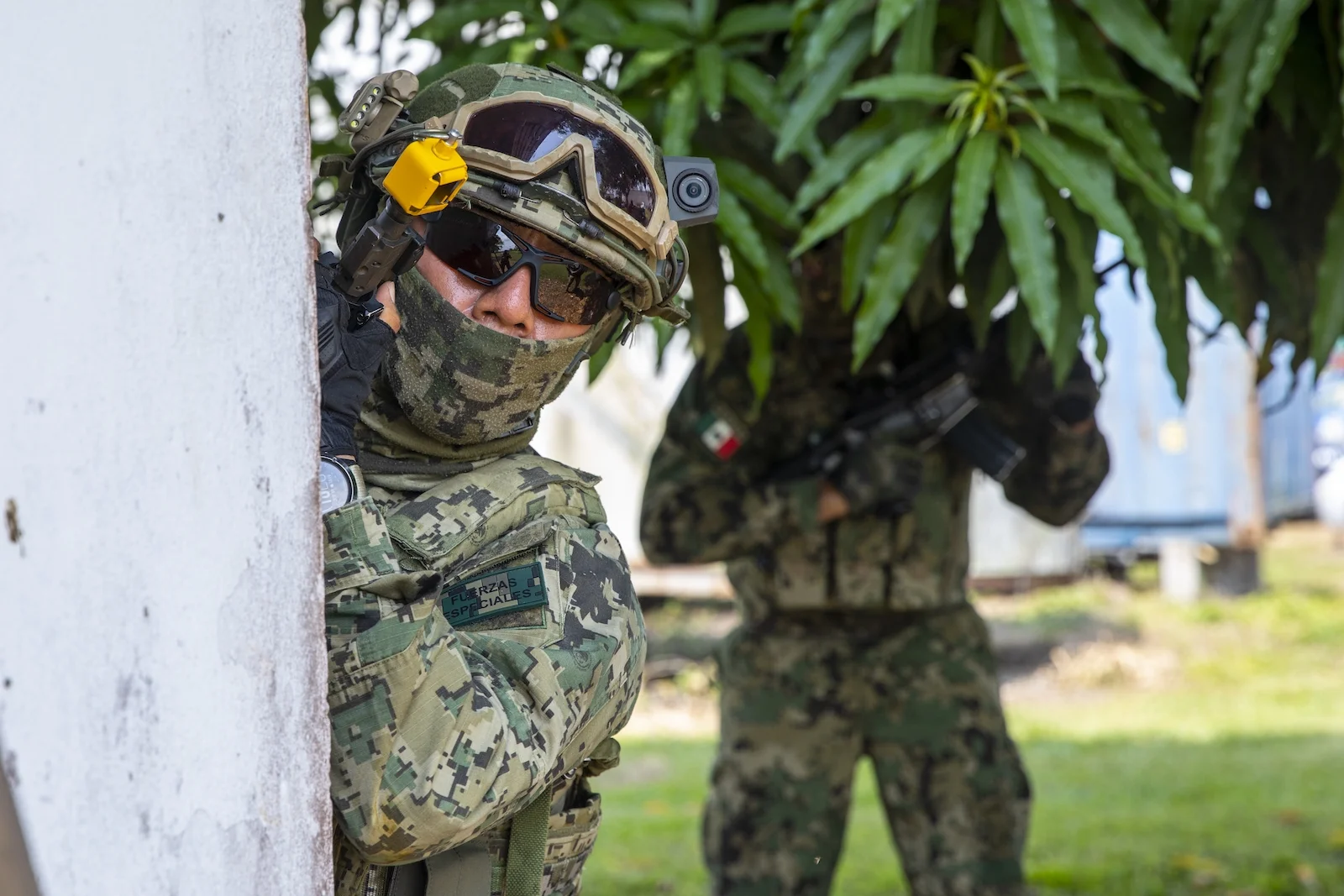
Countering the Cartels: Why the U.S. Must Empower Mexico’s Military
In the early morning hours of January 5, 2023, Mexican special forces launched a daring raid to capture Ovidio Guzmán López, the son of the infamous Sinaloa Cartel leader Joaquín “El Chapo” Guzmán. Trained by U.S. forces, the Mexican special forces unit engaged in intense close-quarter combat with heavily armed cartel gunmen, swiftly overpowering them and successfully capturing Guzmán López.
Mexican cartels present a significant and growing threat to U.S. national security. A recent executive order designated these groups as foreign terrorist organizations, establishing a legal framework for potential U.S. military intervention against them. Some in the administration now advocate for a direct military response. But instead of committing American forces to combat, the United States should dramatically increase its support for the Mexican military to confront the cartel threat more effectively.
Although direct intervention by the U.S. military might achieve short-term tactical success, it would also risk severe cartel retaliation, diplomatic fallout, and the possibility of mission creep. By contrast, expanded training and funding for Mexican special forces provide a more sustainable and cost-effective strategy—one that enhances Mexico’s long-term capabilities while reducing the risk to U.S. personnel and civilians.
The Centers for Disease Control and Prevention estimate that 107,543 Americans died from drug overdoses in 2023, with nearly 70 percent of those fatalities linked to synthetic opioids. Mexican cartels are responsible for producing and trafficking the majority of these drugs into the United States. More than a million Americans have died during the course of the opioid epidemic. Meanwhile, cartel violence increasingly threatens U.S. security, spilling across the border and manifesting in recent attacks on American civilians and law enforcement officials.
Former Mexican President Andrés Manuel López Obrador pursued a policy of “hugs, not bullets,” aimed at avoiding confrontation with the cartels. However, this approach failed to reduce violence. Though the 2021 U.S.-Mexico Bicentennial Framework—signed during López Obrador’s administration—helped enhance intelligence sharing and military training, Mexico remains under siege. Now is the time to significantly expand the training and equipping of Mexican special forces if the fight against the cartels is to make real progress.
U.S. Special Forces have already demonstrated their ability to effectively train Mexican counterparts, as evidenced by the success of the unit that captured Guzmán López. Given the pervasive corruption in the Mexican government and armed forces, reliable and disciplined special forces units are essential. U.S. Special Operations Command (SOCOM) should continue its support for established Mexican special forces while helping to build new units. Although it may take years for these new forces to yield measurable results, the process must begin now.
A training-centered approach is not only less risky but also more cost-effective than direct military intervention. The cartels have shown a chilling capacity for reprisal. After Guzmán López was first captured in 2019, the Sinaloa Cartel unleashed a wave of violence so intense that President López Obrador released him to prevent further bloodshed. A unilateral U.S. military strike would likely provoke similar retaliation, placing the roughly 1.3 million Americans living in Mexico at significant risk. Additionally, cartels could exploit their well-established human trafficking networks to carry out retaliatory attacks on U.S. soil.
From a fiscal standpoint, expanded training missions would cost considerably less than prolonged U.S. military deployments, which require specialized equipment, logistics, and operational support. The savings could be redirected toward combating cartel financing networks or implementing domestic policies to reduce overdose deaths.
Direct U.S. military action could also spiral into a protracted counterinsurgency campaign. History has shown that such missions are costly, complex, and difficult to exit. Increasing support for Mexican special forces enables the United States to address the threat more effectively while avoiding another drawn-out foreign engagement the American public is unlikely to support.
Just as importantly, strengthening Mexican special forces preserves the partnership between the United States and Mexico. The Mexican government has made clear that any U.S. military intervention on its territory would violate its sovereignty. Unilateral action would severely damage diplomatic relations and complicate future cooperation against the cartels. A counter-cartel strategy that lacks the Mexican government’s and public’s support is unlikely to succeed. Long-term victory demands local buy-in.
While some argue that direct U.S. military raids targeting cartel leaders, logistics centers, and production sites would disrupt operations, such actions would only offer short-term disruption. Cartels possess vast territorial control, advanced weaponry, and deep financial resources. Any U.S. campaign that lacks Mexican support would almost certainly devolve into a prolonged and unpopular war—one the United States is unlikely to win.
Mexican cartels are a real and immediate threat to American lives. It is tempting to embrace swift, decisive action in the form of direct military intervention. But the costs—in human lives, diplomatic relations, and strategic stability—far outweigh the benefits. The United States now stands at a critical juncture. Investing in Mexican Special Operations Forces can forge a more effective, enduring path toward shared security for both nations.
